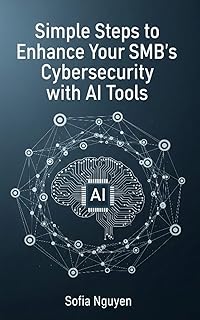The impact of artificial intelligence on the cybersecurity workforce is a topic of increasing importance in today’s digital landscape. The National Initiative for Cybersecurity Education (NICE) has been at the forefront of discussions on how emerging technologies, particularly artificial intelligence (AI), will shape the future of cybersecurity work. Through engagements with various stakeholders, NICE has been exploring the potential implications of AI on the nation’s digital workforce.
One key development in this area is the revision of the NICE Workforce Framework for Cybersecurity, which was updated to incorporate insights on how AI will influence cybersecurity roles. This revision, outlined in NIST Special Publication 800-181 rev.1, aims to provide a more comprehensive understanding of the intersection between AI and cybersecurity, including the associated risks and opportunities. By integrating AI into the NICE Framework, NICE is working towards equipping cybersecurity professionals with the necessary knowledge and skills to navigate the evolving digital landscape.
As part of this initiative, NICE has introduced a new Competency Area focused on AI security. This area outlines the foundational knowledge and skills required to address the implications of AI in cybersecurity work. Additionally, the NICE Framework Work Roles are being reviewed and updated to reflect the impact of AI, ensuring that cybersecurity professionals are prepared to leverage AI effectively in their roles.
One of the key considerations in incorporating AI into cybersecurity work is ensuring the security of AI systems. With technology constantly evolving, cybersecurity professionals must be equipped to protect AI systems from potential cyber threats and attacks. By integrating AI into cybersecurity roles, professionals can enhance data analysis capabilities and detect network anomalies more effectively.
Furthermore, AI holds promise as a tool to enhance cybersecurity practices, offering opportunities to improve data analysis and strengthen overall security measures. By embracing AI technologies, organizations can enhance their cybersecurity capabilities and adapt to the changing digital landscape.
For those interested in contributing to the ongoing discussions on AI and cybersecurity workforce development, NICE provides various avenues for engagement. Individuals can join the NICE Community Coordinating Council, participate in NICE events, or reach out directly to the NICE Framework team to share insights and feedback. By fostering collaboration and dialogue, NICE aims to shape a cybersecurity workforce that is well-equipped to leverage AI technologies effectively.
In conclusion, the integration of artificial intelligence into the cybersecurity workforce represents a significant step towards enhancing cybersecurity practices and addressing emerging cyber threats. By staying abreast of technological advancements and actively engaging with stakeholders, organizations can build a resilient cybersecurity workforce capable of navigating the complexities of the digital age.
📰 Related Articles
- THAI Academy Initiative Enhances AI Skills for Thai Workforce
- UK’s TechFirst Initiative Addresses AI Skills Gap for Workforce
- Reebok Launches Smart Eyewear Line with AI Integration for Active Lifestyles
- RadNet Enhances Imaging with See-Mode AI Acquisition
- Paraplanners Navigate AI Integration in Financial Advisory Evolution






